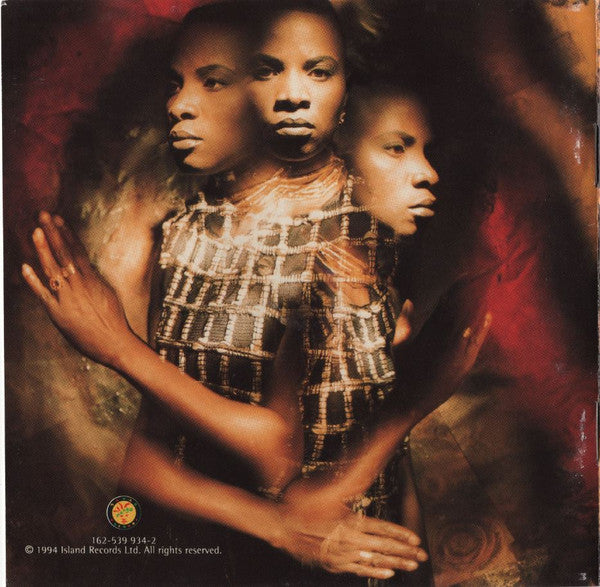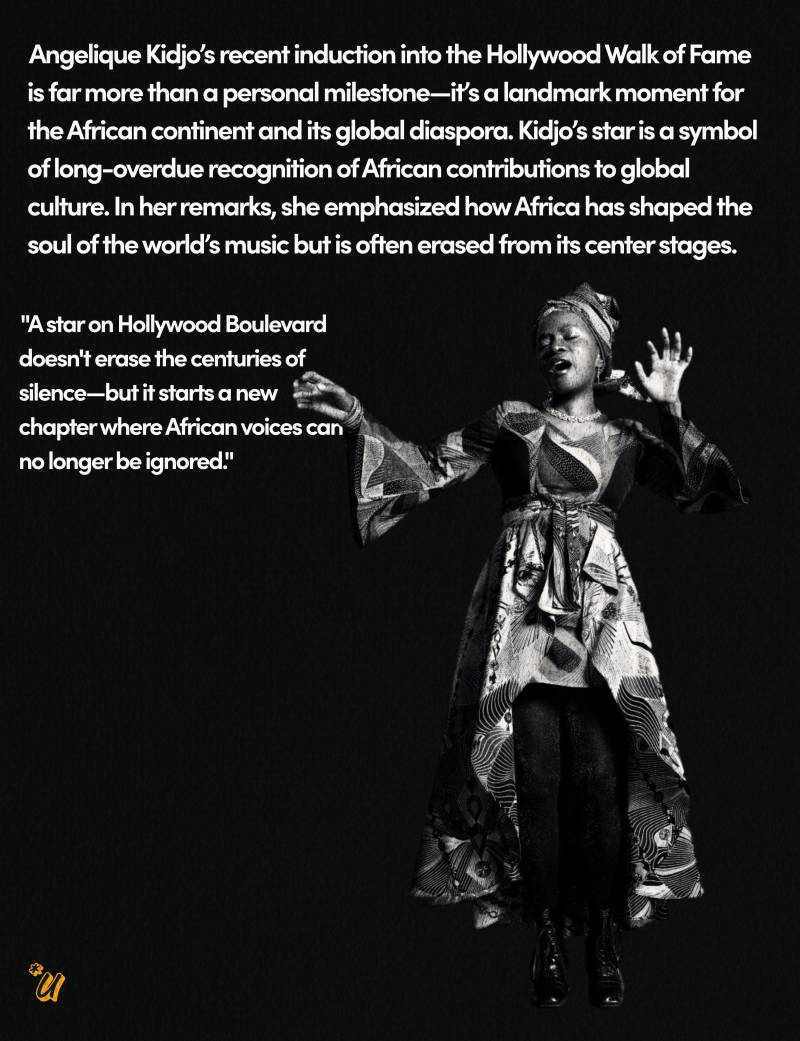In a groundbreaking achievement for African music and global representation, Angelique Kidjo has become the first African artist in history to be honored with a star on the iconic Hollywood Walk of Fame. This momentous occasion marks not only a personal victory for the five-time Grammy Award-winning singer but also a transformative milestone for African artists worldwide, particularly Nigerian women navigating the complex layers of the music industry. Angelique Kidjo’s star represents more than just fame. It reflects decades of consistent artistry, cultural advocacy, and a fearless approach to blending African rhythms with global sounds. Her work has long been a bridge between continents, using music as a tool for cultural diplomacy, unity, and education. The fact that the Hollywood Chamber of Commerce has recognized this — in a space traditionally dominated by Western entertainers — is symbolic of a shift towards greater inclusivity in global recognition.

Read Also: Uphorial Sweatshirt

For Nigerian women in music, this is a resounding signal: the world is listening. Historically, African women have been grossly underrepresented in global entertainment circles. While Nigeria's music scene is booming — and names like Tiwa Savage, Yemi Alade, Tems, and Ayra Starr are making waves — global industry barriers have often made it harder for women to attain sustained visibility. Kidjo’s achievement provides a clear path and a global nod to the possibility of enduring, impactful artistry. This historic moment challenges the prevailing narrative that only artists based in or signed to major American or European labels can achieve such milestones. Kidjo, a Beninese-born legend who stayed true to her roots while embracing innovation, did not conform to the industry's typical mold. Her recognition sets a precedent for authenticity. Nigerian women artists, many of whom infuse traditional elements like Yoruba chants, Afrobeat, highlife, and Afro-fusion into their music, can see this as validation that staying true to one's sound, message, and cultural identity is not only valid — it is powerful.
Moreover, Kidjo's visibility on such a global platform helps to reframe how African women are perceived in the entertainment industry. Her success redefines the image of the African woman not as a supporting character, but as a pioneering force. This shift is especially important for Nigeria, a country with immense musical talent but also systemic gender inequality in creative spaces. The glass ceiling has cracked wider open. Another layer to consider is the influence of this recognition on younger generations. Kidjo’s star is not just cemented into a Los Angeles sidewalk; it’s etched into the consciousness of aspiring female African musicians who now have a role model whose legacy is officially immortalized. This milestone can inspire a bolder generation of Nigerian women to rise without apology — to own their sound, break molds, and aim globally.
Beyond symbolism, this honor may also attract global investment, collaborations, and partnerships that uplift African female artists. As international eyes shift toward the continent, it becomes increasingly likely that more Nigerian talents will get booked for global stages, awards, and deals. Representation has a real economic and creative impact. In the end, Angelique Kidjo receiving a star on the Hollywood Walk of Fame is not just about one artist. It’s about the elevation of an entire continent’s narrative — and for Nigerian women in music, it’s a resonant message of possibility. With this milestone, the world doesn’t just hear African women; it finally sees them, honors them, and makes room for them to shine on every global stage. As Nigeria continues to shape the sound of the future, Angelique Kidjo’s legacy paves the way for women to do so louder, freer, and more fearlessly than ever.



